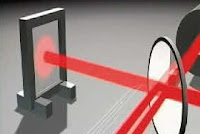 |
| Yoky Matsuoka |
Born in Japan, she originally aspired to be a champion tennis player. A series of injuries ended her tennis career, but observing the process by which her mind and body worked together to heal her injuries inspired her to enter her current field. To view the episode in its entirety, click here. To view it divided into 3 shorter segments, click here.


